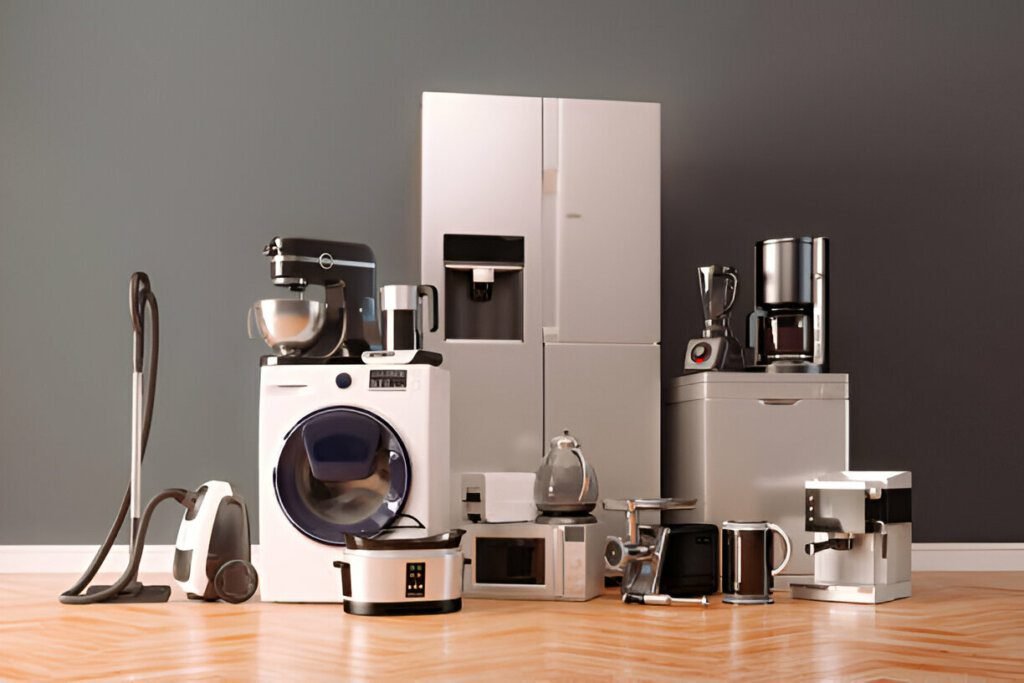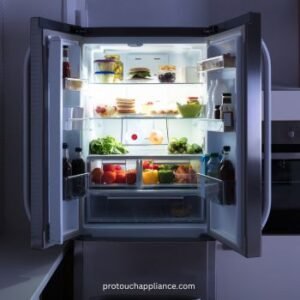Essential Home Appliance Maintenance Tips

Managing home appliances can be daunting, especially for busy families. With hectic schedules and little free time, keeping up with appliance maintenance might seem impossible. However, with some easy-to-follow tips and a bit of regular attention, you can ensure your appliances run smoothly and efficiently. This not only saves you money in the long run but also helps prevent inconvenient breakdowns. Let’s dive into some essential maintenance tips that will help you keep your home appliances in top shape without taking too much of your precious time.
Monthly Maintenance Checklist: Simple Tasks to Keep Appliances Running Smoothly
One of the best ways to keep your appliances in good condition is by sticking to a monthly maintenance checklist. This might sound overwhelming, but it only requires a few minutes of your time each month. For your refrigerator, make sure to clean the coils and check the door seals. Dusty coils can cause your fridge to work harder, increasing your energy bills, and loose door seals can let cool air escape, making your fridge less efficient.
For your dishwasher, clean the filter and run a cleaning cycle with vinegar. This helps prevent clogs and ensures your dishes come out sparkling clean. Don’t forget your washing machine! Inspect the hoses for any signs of wear or leaks, and clean the detergent drawer to prevent buildup. Lastly, for your oven, simply wipe down the interior and check for any burnt-on spills that could cause smoke or unpleasant smells the next time you cook.
Seasonal Deep Cleaning: How to Clean Your Appliances for Peak Performance
Apart from monthly maintenance, seasonal deep cleaning is crucial for keeping your appliances at their best. Think of it as giving your appliances a spa day four times a year. For your fridge, empty it out, discard any expired items, and give all the shelves and drawers a thorough cleaning with warm soapy water. This not only keeps your fridge clean but also helps in keeping food fresher for longer.
When it comes to your dishwasher, remove and clean the spray arms and scrub away any mineral deposits that may have accumulated. This ensures that your dishwasher can spray water effectively, giving you cleaner dishes. For your washing machine, run an empty cycle with hot water and a cup of vinegar. This helps to remove any mold or mildew that may be lurking inside. Lastly, clean your oven’s racks and interior with a mixture of baking soda and water. Let it sit for a few hours before wiping it away to remove stubborn grime and grease.
DIY vs. Professional Help: When to Call in the Experts
There are some maintenance tasks you can handle yourself, but there are times when it’s best to call in the professionals. Changing refrigerator water filters or unclogging dishwasher drains are simple DIY tasks that can save you a service call. However, if your fridge stops cooling or your washing machine starts making loud noises, it’s time to bring in an expert. Trying to fix these issues yourself can sometimes cause more harm than good, leading to expensive repairs.
Professionals have the right tools and expertise to diagnose and fix problems efficiently. Plus, regular professional maintenance can extend the life of your appliances. Consider scheduling a professional check-up for your major appliances once a year. This proactive approach can catch potential issues early before they turn into costly repairs.
Book your appliance repair expert
Energy-Saving Tips: Reduce Your Utility Bills with Efficient Appliance Use
Keeping your appliances well-maintained is not only about preventing breakdowns; it’s also about saving energy. Efficient appliance use can significantly reduce your utility bills. For example, make sure your refrigerator is set to the optimal temperature – 37°F for the fridge and 0°F for the freezer. This prevents overworking while keeping your food fresh.
When using your dishwasher, only run it when it’s full. This maximizes water and energy use. The same goes for your washing machine – wait until you have a full load before doing laundry. Also, consider washing with cold water whenever possible. Many modern detergents work well in cold water, and it saves energy that would be used to heat the water.
Your oven is another appliance where you can save energy. Avoid opening the door frequently while cooking, as this lets heat escape and forces the oven to use more energy to maintain the temperature. Use a timer or a light to check on your food instead. Also, match the size of your pots and pans to the size of your burners on your stove. Using a small pot on a large burner wastes energy.
Conclusion
By following these simple maintenance tips, you can keep your home appliances running smoothly and efficiently. A monthly maintenance checklist ensures that small issues are addressed before they become major problems. Seasonal deep cleaning keeps your appliances in peak condition, while knowing when to call in the professionals can save you from costly repairs. Finally, adopting energy-saving practices not only reduces your utility bills but also helps the environment. So, take a little time to care for your appliances, and they will reward you with reliable performance and longevity.




I am really impressed along with your writing skills and also with
the format for your weblog. Is this a paid theme or did you customize it yourself?
Either way stay up the excellent quality writing, it’s rare to look
a nice weblog like this one today. Tools For Creators!